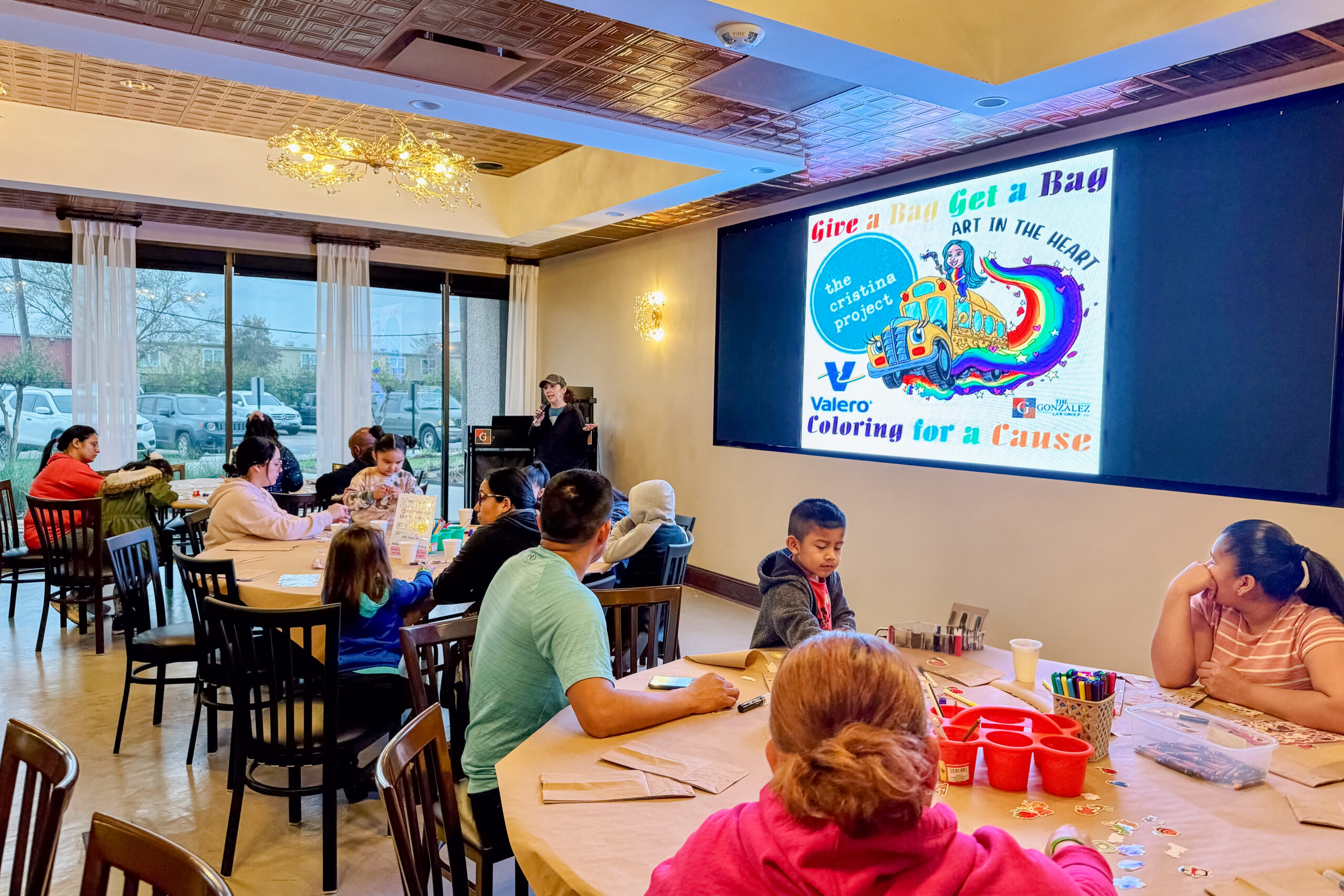Planning a charity event is a rewarding yet challenging endeavor that requires careful preparation and strategic execution. Whether you’re aiming to raise funds, spread awareness, or foster community engagement, knowing how to plan a charity event is crucial to achieving your goals.
This guide is designed to walk you through every step of the process, offering valuable insights and practical tips to help you organize an event that not only meets but surpasses your expectations.
By understanding the key components of event planning, you’ll be better equipped to create a memorable experience that resonates with your audience and makes a significant impact on your cause.
How to Plan a Charity Event?
Successfully planning a charity event requires a blend of creativity, organization, and dedication. Whether you’re raising funds for a cause close to your heart, spreading awareness, or uniting a community, understanding how to plan a charity event will set the foundation for your success.
The process involves several key steps, each essential to ensuring that your event not only achieves its objectives but also leaves a lasting, positive impact on everyone involved.
1. Define Your Purpose and Goals
The foundation of any successful charity event lies in a clear understanding of its purpose. Begin by asking yourself fundamental questions: Why are you hosting this event? What is the primary objective? Whether your goal is to raise a specific amount of funds, spread awareness for a cause, or engage the local community, having a well-defined purpose will shape every decision you make.
For instance, if your goal is to raise funds, it’s crucial to establish a target amount that will guide your efforts. This goal should be both ambitious and realistic, considering your resources and the scope of the event. On the other hand, if raising awareness is your main objective, focus on outreach strategies that maximize visibility and engagement.
Once you’ve established your goals, break them down into smaller, actionable objectives. For example, if your goal is to raise $50,000, set milestones such as securing $10,000 in sponsorships, selling 500 tickets, or attracting 20 major donors. These benchmarks will not only help you stay on track but also allow you to measure your event’s success more effectively.
2. Choose the Right Venue
The venue is a pivotal element in the success of your charity event, as it sets the tone and atmosphere. Begin by considering the nature of your event and the needs of your attendees. Is your event formal or casual? Is it a large gathering or an intimate affair? These considerations will influence your choice of a charity event venue.

For example, Up Above Venue in Houston offers a versatile space that can accommodate various event types, from formal seminars to lively intimate gatherings. When selecting a venue, prioritize factors such as location, accessibility, and capacity. A centrally located venue with ample parking and easy access to public transportation can significantly increase attendance.
Additionally, consider the venue’s amenities and services. Does it offer in-house catering, or will you need to hire an external vendor? Is there sufficient space for entertainment, such as a stage or dance floor? Are there facilities for guests with special needs? Ensuring that the venue aligns with your event’s theme and logistical requirements is crucial for a smooth and successful event.
Related blog: 10 Factors to Consider Before Choosing a Charity Event Venue.
3. Set a Budget
Budgeting is one of the most critical aspects of planning a charity event. A well-thought-out budget not only ensures that you stay within financial limits but also helps you allocate resources effectively. Start by listing all potential expenses, including venue rental, catering, entertainment, marketing, and contingency funds for unforeseen costs.

When setting your budget, it’s essential to prioritize your spending. Identify the elements that are most crucial to the event’s success and allocate funds accordingly. For example, if your event’s appeal largely depends on entertainment, investing in high-quality performers or speakers may be worth the cost.
Don’t forget to account for potential revenue sources, such as ticket sales, sponsorships, and donations. Estimating these incomes will give you a clearer picture of your financial position and help you plan accordingly. Always keep a contingency fund, typically 10-15% of your total budget, to cover unexpected expenses. This safety net can prevent financial stress and ensure that your event remains on track.
4. Assemble a Dedicated Team
A successful charity event hinges on the strength and dedication of the planning team. Start by identifying individuals who are passionate about the cause and have relevant skills. Whether they are volunteers or paid staff, each team member should have a clear role that leverages their strengths.
For example, designate a logistics coordinator to handle venue arrangements, a marketing expert to oversee promotions, and a finance manager to track budgets and donations. Clear communication and defined roles are essential to prevent overlap and ensure that every aspect of the event is covered.

Regular meetings and updates are crucial for keeping the team aligned and addressing any challenges that arise. Foster a collaborative environment where team members feel comfortable sharing ideas and feedback. Recognizing and appreciating their efforts can boost morale and motivation, leading to a more successful event.
5. Develop a Marketing and Promotion Strategy
Marketing and promotion are vital to attracting attendees and donors to your charity event. Begin by identifying your target audience and tailoring your message to resonate with them. Use a multi-channel approach to reach a broader audience, combining traditional methods like flyers and press releases with digital strategies such as social media campaigns, email marketing, and online advertisements.
Create compelling content that highlights the cause, the impact of the event, and the benefits of participating. For example, share stories of individuals or communities who will benefit from the funds raised, or offer sneak peeks of special guests or performances. Engaging visuals and videos can also enhance your promotional efforts.
Timing is key to successful promotion. Start your marketing campaign well in advance, with regular updates to maintain momentum. Leverage partnerships with local media, influencers, and community organizations to amplify your reach. Additionally, consider offering early bird tickets or special incentives to encourage early registration and build excitement.
6. Secure Sponsorships and Partnerships
Sponsorships are a valuable resource for any charity event, providing both financial support and credibility. When seeking sponsors, focus on companies and organizations that align with your cause. Prepare a compelling sponsorship proposal that outlines the benefits of partnering with your event, such as brand exposure, networking opportunities, and positive public relations.
Offer various sponsorship packages to cater to different levels of involvement. For instance, a platinum sponsor might receive prominent logo placement on all event materials, a speaking slot during the event, and exclusive VIP access. A smaller sponsor might receive social media mentions and a logo on the event website.
Partnerships with other organizations can also enhance your event’s success. For example, collaborating with local nonprofits, community groups, or businesses can expand your reach and resources. These partnerships can lead to cross-promotion, shared audiences, and additional support in terms of volunteers, materials, or expertise.
7. Plan the Program and Activities
The program is the heart of your charity event, and its success depends on thoughtful planning and creativity. Start by outlining the key segments of your event, such as speeches, performances, auctions, or award ceremonies. Each element should align with your event’s goals and contribute to a cohesive experience for attendees.
Consider the flow and pacing of the event to keep your audience engaged. For instance, alternating between high-energy activities like performances and more reflective moments like speeches can create a dynamic and memorable experience. If your goal is to raise funds, incorporate opportunities for donations throughout the program, such as a live auction, donation drive, or a call-to-action speech.
Tailor the content to resonate with your audience. If your attendees are primarily corporate sponsors, focus on the impact of their contributions and opportunities for networking. For a community-focused event, emphasize local involvement and personal stories. Engaging your audience on an emotional level can inspire greater participation and support for your cause.
8. Organize Logistics and Operations
Logistics and operations are the backbone of a smooth-running charity event. Start by creating a detailed timeline that outlines every task leading up to the event, from securing the venue to arranging transportation and setting up the venue. Assign specific responsibilities to team members and ensure that everyone is aware of their duties.
On the day of the event, have a clear plan in place for managing registration, seating arrangements, catering, and technical support. Consider the needs of your attendees, such as accessibility for those with disabilities, clear signage, and adequate staffing for guest assistance.
Having a backup plan for potential issues is essential. For example, if you’re hosting an outdoor event, prepare for inclement weather by having tents or an indoor alternative. For technical difficulties, have a tech support team on standby and backup equipment available. These precautions will help ensure that the event runs smoothly, even if unexpected challenges arise.
9. Engage Your Attendees
Engagement is key to creating a memorable and impactful charity event. From the moment attendees arrive, aim to create an experience that resonates with them on a personal level. Consider interactive elements such as live social media updates, photo booths, or a Q&A session with speakers.
Personalizing the experience can also deepen attendees’ connection to the cause. For example, acknowledge top donors with special recognition during the event or offer them exclusive access to a VIP area. Encourage attendees to share their own stories or reasons for supporting the cause, either through a designated speaking segment or an interactive display.

Post-event engagement is equally important. Send personalized thank-you notes to attendees, sponsors, and volunteers, highlighting the impact of their participation. Sharing photos, videos, and results from the event can help maintain the momentum and encourage ongoing support.
10. Evaluate and Follow Up
After the event, take the time to evaluate its success and gather feedback from attendees, sponsors, and your team. This evaluation should be based on the goals and objectives you set at the beginning of the planning process. Did you reach your fundraising target? How was the overall attendee experience? What areas could be improved for future events?
Use surveys, interviews, or informal conversations to collect feedback. Analyzing this data will provide valuable insights into what worked well and what can be enhanced. Share the results of the event with your team, sponsors, and key stakeholders to keep them informed and engaged.
This transparency helps build trust and fosters stronger relationships for future collaborations. Additionally, use the insights gained from the evaluation to make adjustments and improvements in your planning and execution strategies for upcoming events.
Conclusion
Planning a successful charity event involves careful attention to detail, strategic decision-making, and strong teamwork. By defining your goals, choosing the right venue, setting a realistic budget, and effectively promoting your event, you can create an experience that not only meets its objectives but also leaves a lasting impression. Engaging your attendees, securing sponsorships, and planning your program thoughtfully are essential to the event’s success.
After the event, take time to evaluate and gather feedback, which will provide valuable insights for future events. With thoughtful planning and execution, your charity event can achieve its goals, inspire change, and make a meaningful impact on your community.








